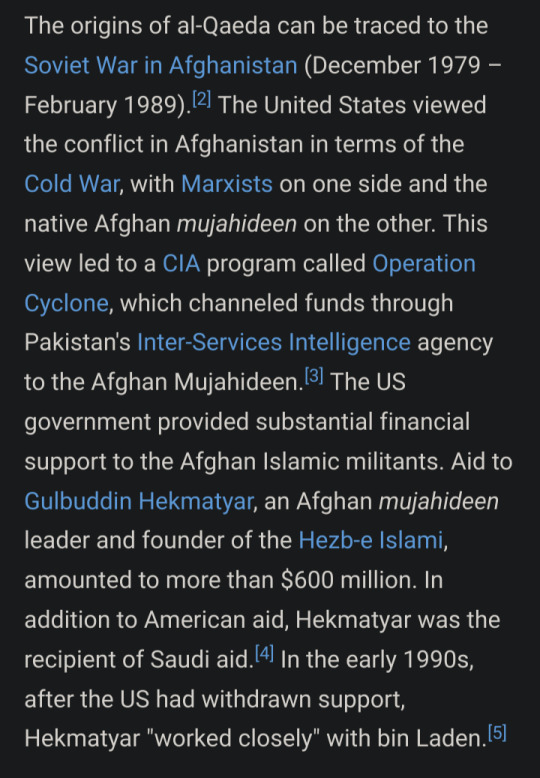Text
On the night of April 30, 1541, the Ming Ancestral Temple in Beijing was struck by lightning and burned to the ground. […]
[T]he fires forced the Jiajing Emperor to resurrect one of the dynasty’s most expensive, difficult, and destructive projects: the logging of old-growth timber in the far southwest of China. Disaster struck again in 1556, when fires burned the Three Halls that form the central axis of the Forbidden City. The Three Halls burned yet again in 1584. Through the end of the sixteenth century, repeated damage to the imperial palaces forced reconstruction. Yet the lightning strikes in Beijing were also a disaster for the old-growth forests of the southwest, where the logs to build the palaces had first been cut in the early 1400s. As logging supervisors soon learned, ancient trees could not be felled on a regular basis. Officials pressed ever deeper into the gorges of southern Sichuan and northern Guizhou to find them, bringing massive transformations to the environment in the process.
—
The foundations of Beijing were laid between 1406 and 1421 by the Yongle emperor, a junior son of the Ming founder, who moved the court to his personal appanage in north China. […] Grasping the sinews of power that connected his court to far-flung regions of the empire, Yongle pulled one million laborers to Beijing to build his palaces.
Because the weight of Chinese buildings is carried by their pillar-and-beam frameworks (liangzhu), monumental buildings required monumental trees (Figure 2). So Yongle also dispatched a similarly large labor force to the old-growth forests of the far southwest to cut the fir (Cunninghamia lanceolata) and nanmu (Phoebe zhennan) that grew straight and tall enough to be used for imperial construction.
We cannot be certain just how many logs were cut to build Beijing, but the figure must have been astounding. In 1441, two decades after the completion of the project, 380,000 large timbers were left over from the earlier construction. By 1500, these too were gone, used for repairs or too damaged by rot to be used for construction purposes.
—
In the sixteenth century, logging officials wondered how their predecessors had been able to obtain so many giant timbers. Li Xianqing, who supervised more than 40 logging sites in the 1540s, noted that large trees could still be found, but they could only be transported out with great difficulty and at great expense. The majority had to be discarded as hollow or insect-damaged.
Even when a quality log was found, it took five hundred workers to tow a log over mountain passes.
Skilled craftsmen were on hand to build “flying bridges” (fei qiao), stone-lined slip roads, and enormous capstans (tianche) to tow the logs up slopes (Figures 3 and 4). In the remote forests of the southwest, loggers faced attacks by snakes, tigers, and “barbarians” (manyi); “miasmatic vapors” (yanzhang, probably malaria); storms, forest fires, rockslides, and raging rivers (Figure 5). Labor teams had to carry their own food and often starved. At the rivers, logs were tied into massive rafts bound with bamboo for buoyancy, towed by teams of 40 men, and then launched on the three-year, three-thousand-kilometer journey to Beijing (Figure 6). Only a small fraction of the trees reached the capital in a condition where they could be used for palace building.
—
Expeditions exceeded their budgets up to fiftyfold.
One official remarked, “the labor force numbers in the thousands; the days number in the hundreds; the supply costs number in the tens of thousands each year.” Another saying held that “one thousand enter the mountains, but only five hundred leave” (rushan yiqian chu shan wubai).
To make matters worse, logging mostly occurred within territory that was under only loose Ming control, the southwestern borderlands where local potentates were appointed as “native officials” (tusi) […]. But in the 1550s, and again in the 1580s, warfare broke out among […] officials competing to supply the court with increasingly scarce timber. […]
—
The Yongle Palaces were said to replicate the otherworldly atmosphere of the old-growth forests where their pillars originated. The presence of these timbers in Beijing linked the capital, materially and symbolically, to the southwestern landscape of cliffs and gorges where the trees had grown.
But ancient sentinel trees could not be reproduced on demand. The fifteenth-century logging project was a millennial event, removing the growth of hundreds or even thousands of years. Later officials were forced to come to terms with the transformations their predecessors had wrought in the ancient forests. Eventually builders had to switch to smaller, commercially available timber, using ornate artisanship and commercial efficiency to substitute for the austere majesty of the early Ming palaces, and the thousands of years of tree growth on which they rested.
—
Text by: Ian M. Miller. “The Distant Roots of Beijing’s Palaces.” Rachel Carson Center for Environment and Society, Environment & Society Portal, Arcadia no. 39. Autumn 2020. [Bold emphasis and some paragraph breaks/contractions added by me.]
408 notes
·
View notes
Text
I've been treated to some truly wild takes on the genocide in Gaza and the accompanying protests at this point, including from some people I used to respect, but by far the most unhinged line of reasoning I've seen has to be "guh, of course there's war crimes happening in Gaza. All wars have war crimes. Nobody was ever mad when other countries did war crimes, but they're mad now. I wonder what's different this time? That's right, it's an opportunity to hate Jewish people. Folks showing their true colours I guess..."
Like...so much stuff going on there.
First of all, uh, we have actually been pretty mad about war crimes done by other countries. Including by the US! I've seen the line "this is like our 9/11, do you get it now?" so many times. And hey, I remember 9/11 and the following shift in western politics, but I have received the troubling news lot that a lot of full blown adults with political opinions were somehow born after 9/11. I now feel old. Anyway, for those people, I will tell you that even after 9/11, there were protests against going to war in Afghanistan.
"Our Grief is Not a Cry for War"
-Button worn at protest in NYC on Oct. 1, 2001
"You are sending another powerful message to Number 10 and to the White House that we are not simply going to allow the atrocities of September 11 to be replaced with further atrocities in Afghanistan."
- Paul Marsden, UK MP at London protest on Nov. 18, 2001
People do care. People have always cared. The movement to free Palestine seems bigger, but that's because it's joining an organized movement that has been working for decades to bring attention to this cause. People are so angry because the Israeli government is being so strident, gleeful, and vocal about its genocidal intentions. People in the west care so much because our governments are allied with Israel and we are directly culpable for what happens under our watch and with our aid. People are upset that Israel has dropped 22,000 bombs on Gaza in a month and a half, over the explosive power of two nuclear bombs. They're mad not just because that's deplorable, but that that is especially deplorable. That is more than the United States dropped on Afghanistan in 2001 (17,500 bombs), despite Gaza being 14,000 times smaller. As I said, people have always protested war and the crimes inherent to war, but If some people seem more angry at Israel it is because what Israel is doing is legitimately, objectively, and measurably worse.
https://www.washingtonpost.com/national-security/2023/12/09/us-weapons-israel-gaza/
Secondly...okay, let's pretend none of that was true. Let's pretend people are just massive hypocrites who say they hate it when children and hospitals get bombed and are more angry when people do that harder, but in fact they actually usually ignore it as long as it isn't Israel doing it. Someone being a hypocrite does not actually make their point invalid. That's just tu quoque, or "you also", a basicass logical fallacy. Even if someone else is a hypocrite, war crimes are still bad and you should be against them happening.
Like, I feel like the reason this keeps coming up isn't to convince Israel's critics. It's apologetics. It's to convince supporters of Israel, not even that they're right, but that everyone else is wrong and antisemitic and evil, so that they can be ignored. Don't worry! Sure there's this niggling little worry that Israel might be going too far, but everything you hear pushing that position is said by people who don't believe it and only say it because they hate you.
Sure, many Zionists defend Israel as doing nothing wrong, or try to discredit the reporting of what they're doing wrong, but people with inconveniently strong critical thinking skills need a fallback to ease their cognitive dissonance, so apologists have this gem.
Like...if you needed someone else to spell it out for you, "but everyone else gets to do genocides, it's only fair I get to do one too...please it's my birthday I don't know why everyone is being so mean...🥺" Is not a good enough reason to get to do a genocide. There is no reason good enough.
"The War on Terror was a fraudulent idiotic tantrum that has caused horrific and permanent damage to the Middle East" was and continues to be an extremely common position among the left, and even some right wingers feel like it was a mistake at this point. But even if they didn't, even if everyone was mad at just Israel and only Israel, even if it was because everyone was super antisemitic...a stopped clock is right twice a day. Genocide is still bad, and would, in fact, be worse than hypocrisy.
#another go-to of the genocide supporters these days is 'if you think we should stop killing palestinians#(which will leave at least some hamas members alive) then you dont support rape victims'#which is an insane reach
10 notes
·
View notes
Text
Anti-civvers: what if we built a society that didn't require rare resources for it to function? what if we used rare resources exclusively for things that are necessary and cannot (partially or entirely) be made from renewable materials, for example, all-terrain electric wheelchairs for ppl who could not use alternatives (such as sulkies, or a bamboo frame)? bc the reality of the situation is, finite resources run out. people are being enslaved and killed over these finite resources, and the ppl who need them the most (not just in the western world, but across the globe) cannot afford or access them.
if we want to lessen our impact on affected ppls and environments, we should be restructuring our societies so we need less to function and thrive (ex: do we need ads, electric signs, paper resumes, etc?), inventing and rediscovering how to use locally-available materials for our necessities (incl. our need for fun) and sharing that information with everyone, so ppl can learn from and adapt to their own environments and needs.
So-called leftists: ur a eugenicist
#its all 'mutual aid' and 'anti-imperialism' until you point out that the ppl in congo wouldnt be suffering#if first world societies focused on actual sustainability#tit talks#anti civ
7 notes
·
View notes
Text
colonizers had to threaten, kill, torture, abduct and indoctrinate children, raid, destroy entire ecosystems, etc in order to "convince" indigenous ppl to participate in colonial economic systems
similarly, ppl who would become peasants, indentured servants, slaves, etc within a state were "convinced" to participate in economic systems through violence. there's a long history of ppl fighting to keep their subsistence lifestyles and ecosystems alive, they were just described as villainous by the ppl who recorded their existence & rebellions.
39 notes
·
View notes
Text
a lot of yall wanna be leftists until you have to treat drug addicts and the homeless like theyre human beings deserving of dignity and respect
34K notes
·
View notes
Text
there are a few ppl on tumblr who have fantastic critical thinking skills & the information they provide is valuable (when it's not condescending)
but they have bios that are like "i'm smarter then you" as a quote unquote joke, but genuinely do have a superiority complex over anyone they deem dumber than them. and it's soooooo interesting that they maintain the idea that their literature or linguistic education makes them smarter than everyone else bc they dont value other forms of knowledge & skill, which stems from ableism, racism, and classicism at the very least. youll never see them reflect on that tho, bc they think they are too smart to be bigoted.
#such unpleasant ppl. undoubtedly it's ppl like them that reaffirm other ppl's anti-intellectualism.#tit talks
5 notes
·
View notes
Text
has anyone successfully been guilted into activism they didn’t promptly burn out of? i think maybe no
171 notes
·
View notes
Note
How reliable are sayings that Hamas has treated hostages so well? I want to be sure because, especially that one letter from a hostage's mother, can seem very propaganda-y
imo it's propaganda. the first released hostages reported no mistreatment and then israel stopped them talking directly to the press so i don't really know about the letter in particular. like to be clear no amount of being treated well will prevent it from being a very terrifying experience. they're hostages at the end of the day and they were captured in really horrific circumstances
it IS propaganda but its propaganda that belies a specific narrative—that hamas wants the ritual blood of jews and hates all israelis and is incapable of negotiation. keeping a girl alive with her little dog during a bombing campaign that killed 15,000-20,000 people means they are invested in people knowing that they kept this girl and her dog alive. that's objectively a good thing that speaks to a political goal
i don't like most of the "the hostages had a great time" narratives because i think they are reductive and can be extrapolated into making the claim that palestinians deserve not to be bombed because the hostages were treated well. this is simply not the case. palestinians should not be bombed because collective punishment is against international humanitarian law and because airstrikes are a stupid and incoherent way to claim to be "rescuing the hostages" which could have been recovered from day 1 through negotiation and the bombing campaign has already killed several of them.
but there's two reasons this propaganda in particular is so effective:
the first is that israel has been spreading hamas = ISIS narratives since october 7th. they had their own people so terrified of being captured that emily hand's father (who thought she had been killed) said he was glad she was dead instead of captured. this means that regardless of how they were treated, having the hostages come out whole and healthy (let alone the smiling and waving) is enough for people to begin doubting israeli narratives and to see this as an extraordinary humanitarian achievement even if it isn't.
the second is that israel has not been attempting this of the palestinians they have as hostages. palestinians came out of israeli prisons speaking of sexual assault, mistreatment, children with broken bones, limping. some of them did not recognize their families due to years of solitary confinement. the IDF raided family homes and confiscated sweets and shot people waiting outside for their release. israeli authorities banned celebrations in jerusalem. ahed tamimi was arrested for a fake instagram story she didn't even post, and she came out notably drawn and unable to walk unassisted. she was also threatened before her release that her father was in custody and that they would kill him.
so like sure, i think the hostage stuff is propaganda, and i don't think it's useful to claim that they had a good time or that they're besties with hamas now, but i wish israel had the inclination or ability to produce any such propaganda.
i also think the outrage israelis have when they see people claim the hostages were treated well should be seen in light of the latter. many israelis are furious at the implication that hamas is capable of showing mercy because they hate them so much, but they would be better served to consider hamas as a strategic enemy than a barbaric irrational entity. saying that (some of the) hostages were (likely) treated well isn't exactly an exoneration of hamas, it's a reflection on how the hostages were treated.
the hostages are traumatized, but so are the majority of palestinians. to claim that this trauma disqualifies any commentary on hamas is to disqualify israel from any conversation too. it's primarily a reflection of the vast gap in perspective between palestinians, who have been living in a warzone and under brutal occupation and operate with this mentality, and israelis, who have been living in relative peace and comfort. as someone pointed out, october 7th was the first time since 1948 that such a significant battle with such a huge number of casualties was fought in israeli territory. there have been terrorist attacks within israel, yes, but every single war israel has waged since 1948 was fought on arab land (in egypt, lebanon, syria and gaza). you cannot compare a people to whom PTSD cannot be accurately measured because it is "continuous and cumulative trauma" and not post-traumatic stress disorder to the people who set up lawn chairs to watch them being bombed in terms of reaction. it was obviously a very huge shock and horror to the israeli psyche and they are reacting based on how it felt to them as opposed to what actually happened. a hostage coming out relatively unscathed still feels like a violation and a crime, while to palestinians it is evidence that the hostages were more protected than their own people. this is often the core of disproportionate israeli response, and can be traced back to the reality of colonialism and apartheid.
i genuinely feel sorry for many of the hostages, particularly the children. i don't think they should have gone through this and i can't imagine that the airstrikes and bombing made it any easier. i don't want this to be interpreted as "i hope israelis experience the same trauma palestinians have" because i sincerely don't. i'm actually trying to say the outrage at how the hostages were treated should be a window into understanding the palestinian experience. if israelis are outraged and traumtized, then so are palestinians. if they want this to stop, then so do palestinians. if we view this as unequivocally wrong, then israel needs to be stopped by any and all means necessary.
lastly, (bc i think i got this ask after i was talking abt the thai hostages) if hamas was actually ISIS the thai hostages would not have been alive. they were barely mentioned in global coverage, were not in the missing hostage posters, and were largely only part of the conversation as proof of hamas atrocities on oct 7th. they were clearly not the targets nor were they included in the exchange deals to release palestinian prisoners. their treatment and release was independent of the palestinian prisoner negotiations with israel.
what i mean is they had no political leverage for hamas and as migrant workers even within their own country are of the least privileged citizens. i don't think any of them were muslim. the argument that hamas only treated the israeli hostages humanely because they need them as bargaining chips falls apart for the thai hostages. regular people in gaza had trouble finding food and water but they kept them alive and promised the thai negotiator that they would be among those released first and followed through on that. if u know the record of other arab countries with southeast asian migrant workers, this is a relief.
4K notes
·
View notes
Note
Do you know of any forager groups, past or present, which do not make use of animal products (or do so much less than is commonplace)?
Honestly, none that I can think of off the top of my head, although forest-dwelling people consume a lot less animal products than ppl tend to assume (why would they risk their lives & waste their time hunting when they could easily gather an abundance of plant food that wont fight back or run away?).
Although, people across the globe (even in arctic areas with reindeer!) consume a lot more insects than westerners would assume.
It's hard to get accurate information on how things used to be considering meat has been used as a status symbol in many cultures, the fur taxes forced on hunters, and the destruction of ecosystems by colonizers, climate change, and accidentally-introduced plant diseases and pests (the american chestnut, for example, was very important to a lot of eastern woodland foragers).
#sorry i couldnt give you a better answer! maybe when my grandma gets a better caretaker than me i can give you more info#tit answers
4 notes
·
View notes
Text
so funny how many ppl misinterpreted this as a call for individualistic primitivism + continue to add to the post but absolutely refuse to engage with my addendum even tho i replied to them directly. funny. so funny.
anyways here are my tags:
#maybe i shouldve said 'privatized information and forced dependency' instead of 'specialized labor" #but i chose specialized labor bc of its role in colonization & the erosion of traditional knowledge that would otherwise nullify #the threat of poverty.
do you ever think about how vulnerable specialized labor under capitalism has left us?
do you know where to get folate, calcium, iron, iodine etc without buying pills or mass-produced fortified foods? do you know how to process out anti-nutrients in edible substances (like corn, cassava, etc)? do you know how to save and store seeds from various types of edible plants? do you know how to preserve meat without a freezer or salt? how to remove bittern from sea salt? how to find water in a drought and how to purify it? how to treat dehydration?
what happens when it's your money or your life? when militaries target supply chains during war?
#like yall just want to misunderstand and feel like you're fighting the good fight when 99.9% of ppl reblogging this agree with you#tit talks
2K notes
·
View notes
Text
so the solution to your fears of an ethnostate is... two ethnostates?
Israel may be multicultural, but multicultural =/= equal. Along with career inequality, poverty, exposure to violence, and being targetted for hate crimes, many ethnic and religious groups are oppressed in Israel. I understand that this is not unique to Israel, but if a society exists for the benefit of one ethnoreligious group, then it is an ethnostate.
https://www.trtworld.com/opinion/understanding-israel-through-the-marginalised-mizrahi-jews-389035
Also, Bedouin ppl are forcefully assimilated in many countries, including Israel. https://www.jewishvirtuallibrary.org/the-bedouin-in-israel

Ppl do talk about and want to dissolve other ethnostates, all the fucking time. Just bc you don't care to learn about it doesn't mean ppl don't talk about the Ainu in Japan, African slaves in Saudia Arabia and Qatar, ethnic cleansings and oppression of Armenian Kurdish Amazigh etc ppl in the MENA, etc. Also, talking about it online =/= activism.
Yes, violence against Jewish people can and did/ does currently happen, you are valid in your fears. But how is bombing Gaza/ ethnically cleansing Palestinians going to protect Jewish people? Hamas didn't exist before the occupation. Extremist organizations are often born out of war, particularly jihadists.


I'm not a politician, I don't know what the ultimate solution is, and neither do the vast majority of people online talking about the conflict. But ppl are (rightly) upset about tens of thousands of people being murdered in the past few weeks. You live with the fear of perhaps being persecuted, Palestinians in the Gaza Strip live in perpetual fear of actually being killed at any moment.
Mayhaps we can start by fighting for a complete ceasefire, negotiate to get hostages back, and get Palestinian civilians food, medical aid, and clean water. Then figure things out.
Do the people calling for the dismantling of Israel because it's an "ethnostate" not realise that Israel is a thriving multicultural society? Like, it's well-documented. 20% of the population are Arab Israelis, including Muslims, Christians, Bedouins, etc. There are Muslim-representative parties to the Knesset.
If they're so obsessed with ending ethnostates, why aren't they calling for the dissolution of the 50+ Muslim states in MENA? Not going to say anything about Japan? No? Just the Jewish State that you want to be dissolved and replaced with... another Muslim ethnostate? Mkay then.
480 notes
·
View notes
Text
Honestly, I didn't expect this post to get more than 5 notes, from ppl who would've understood the context or couldve asked me directly for clarity.
I'm not implying we should all be independently self-sufficient and omniscient, but we should form community with people who do know this vital information, adapt to our needs with locally-available materials, and make that information freely accessible to all.
For example, I know how to make salt from the ashes of certain plants. Many communities across the globe did this before sodium chloride became cheap and widely available. But there's little to no research on what minerals the salt ashes of various plants provide, what flavor profiles they have, or how to cook with them (some contain a lot of potassium, and would make a very bitter soap out of your soup if you tried using it like table salt). These are all things that should be researched (formally or not), so people know what to do if they find themselves unable to afford or access table or sea salt for whatever reason.
Rather than waiting for capitalism to be replaced by a more benevolent system of global trade or large-scale interdependence, maybe we can take care of each other by learning and sharing information that would keep ppl alive during hard times. Like fao.org does.
Also, the information conventional experts have under capitalism isn't necessarily the most beneficial to all ppl.. some people can't brush their teeth and floss every day, so bee propolis, conifer resin gum, teeth blackening/ lacquering are potential alternatives to accomodate these people. Alternatives that are rarely if ever acknowledged in dental school.
do you ever think about how vulnerable specialized labor under capitalism has left us?
do you know where to get folate, calcium, iron, iodine etc without buying pills or mass-produced fortified foods? do you know how to process out anti-nutrients in edible substances (like corn, cassava, etc)? do you know how to save and store seeds from various types of edible plants? do you know how to preserve meat without a freezer or salt? how to remove bittern from sea salt? how to find water in a drought and how to purify it? how to treat dehydration?
what happens when it's your money or your life? when militaries target supply chains during war?
#tit talks#maybe i shouldve said 'privatized information and forced dependency' instead of 'specialized labor'#but i chose specialized labor bc of its role in colonization & the erosion of traditional knowledge that would otherwise nullify#the threat of poverty.
2K notes
·
View notes
Text
Not getting vaccinated is not “my body, my choice,” it is more like drunk driving or exposing someone to secondhand smoke.
Abled entitlement ensures your risk assessment will always be, “if I get sick, I will be able to recover OK. My family will be OK. My children will be OK.” Never, “Will they be OK? Will their children be OK? Will their family be OK? Will everyone they might also interact with be OK?” Never, “Could this harm their neighborhood? Their state? Their country? Their continent?” Shielded by your abled privileged bravado of “it won’t happen to me.” Never, “Who might I be exposing? I might be OK, but someone else may not.”
3 notes
·
View notes
Text
Via my friend Steph, fellow Autistic with cerebral palsy and other conditions:
-
Something I'm thinking about after seeing it a lot in cerebral palsy groups, but I think it can go for a lot of developmental disabilities: Almost every week, someone is upset at their family for infantilizing them. They ask some version of "How can I get them to treat me like an adult?"
Advice around setting boundaries is generally a good idea, with the caveat that people who infantilize you may be unwilling to acknowledge or respect any boundary you set, particularly if they have power over you.
A lot of times, people answer with some version of, essentially, "prove your competence by doing x thing" That can be things like moving out, not relying on family for care, handling your own finances, etc. There is very often cognitive ableism mixed in as well, as "competence" tends to track with "independence" and with "asserting your intelligence." I've written before about the denial of interdependence and he harm it does before, as have many disability justice activists like Mia Mingus and Patty Berne, so I won't rehash that.
What bothers me most about advice to prove one's competence is that it will always leave out people who can't do whatever the goalpost is. There is no minimal threshold of ability for respect, or for being treated like a full person. People who need care help shouldn't be infantilized. Nor should people who live with family as adults, need cognitive supports, or have an intellectual disability. Even children deserve respect, empathy, and autonomy.
It's true that for a lot of disabled people, more distance from parents can sometimes improve the relationship. But infantilization is never the responsibility of the receiver to fix, or their fault for being disabled. I'm tired of disabled people telling other disabled people to change themselves so that they are worthy of better treatment.
-
19 notes
·
View notes
Text
i just think people should be able to navigate difficulties in their personal life without having the threat of homelessness or starvation or destitution hanging over their heads the whole time
#and the bureacratic process for aid should be easy af so already stressed & struggling ppl dont have to deal with That ontop of#everything else
34K notes
·
View notes







